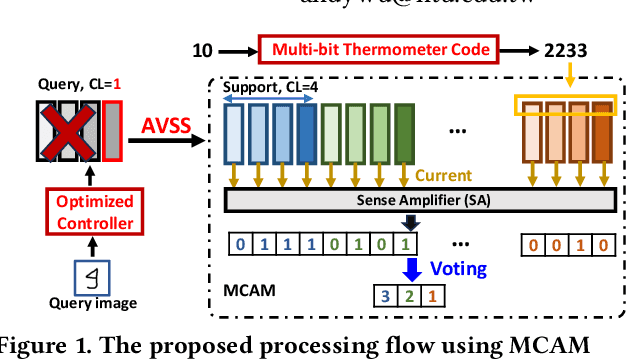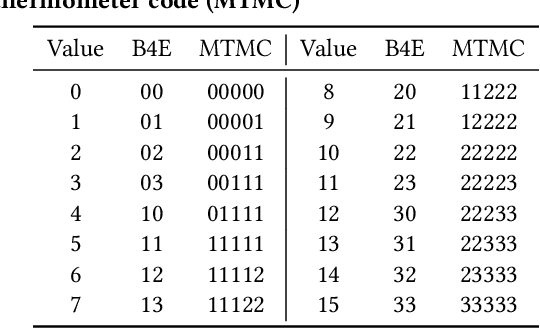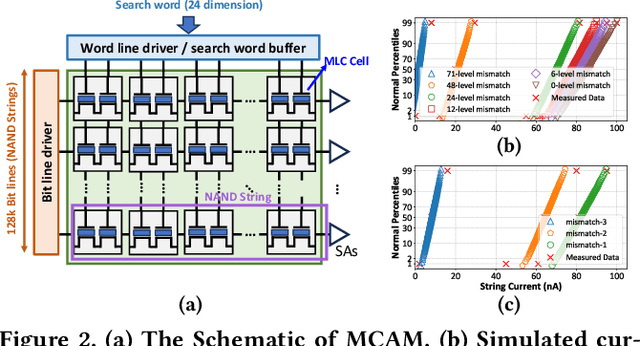Ming-Hsiu Lee
Andy
Efficient and Reliable Vector Similarity Search Using Asymmetric Encoding with NAND-Flash for Many-Class Few-Shot Learning
Sep 12, 2024



Abstract:While memory-augmented neural networks (MANNs) offer an effective solution for few-shot learning (FSL) by integrating deep neural networks with external memory, the capacity requirements and energy overhead of data movement become enormous due to the large number of support vectors in many-class FSL scenarios. Various in-memory search solutions have emerged to improve the energy efficiency of MANNs. NAND-based multi-bit content addressable memory (MCAM) is a promising option due to its high density and large capacity. Despite its potential, MCAM faces limitations such as a restricted number of word lines, limited quantization levels, and non-ideal effects like varying string currents and bottleneck effects, which lead to significant accuracy drops. To address these issues, we propose several innovative methods. First, the Multi-bit Thermometer Code (MTMC) leverages the extensive capacity of MCAM to enhance vector precision using cumulative encoding rules, thereby mitigating the bottleneck effect. Second, the Asymmetric vector similarity search (AVSS) reduces the precision of the query vector while maintaining that of the support vectors, thereby minimizing the search iterations and improving efficiency in many-class scenarios. Finally, the Hardware-Aware Training (HAT) method optimizes controller training by modeling the hardware characteristics of MCAM, thus enhancing the reliability of the system. Our integrated framework reduces search iterations by up to 32 times, and increases overall accuracy by 1.58% to 6.94%.
 Add to Chrome
Add to Chrome Add to Firefox
Add to Firefox Add to Edge
Add to Edge